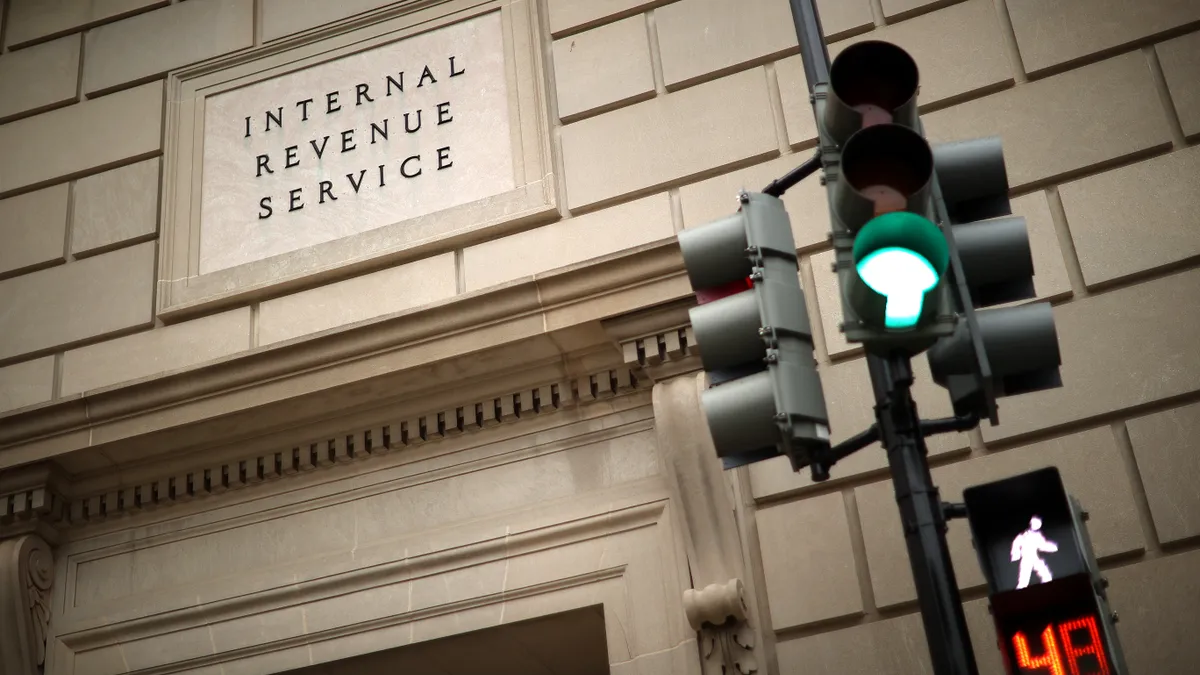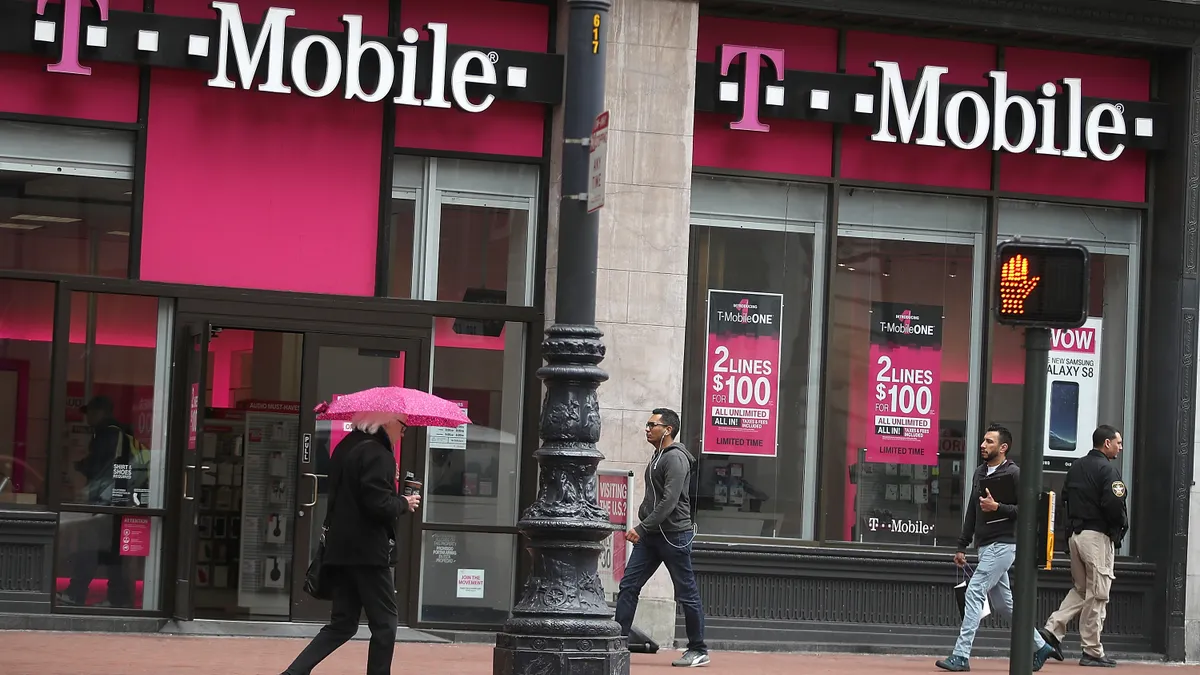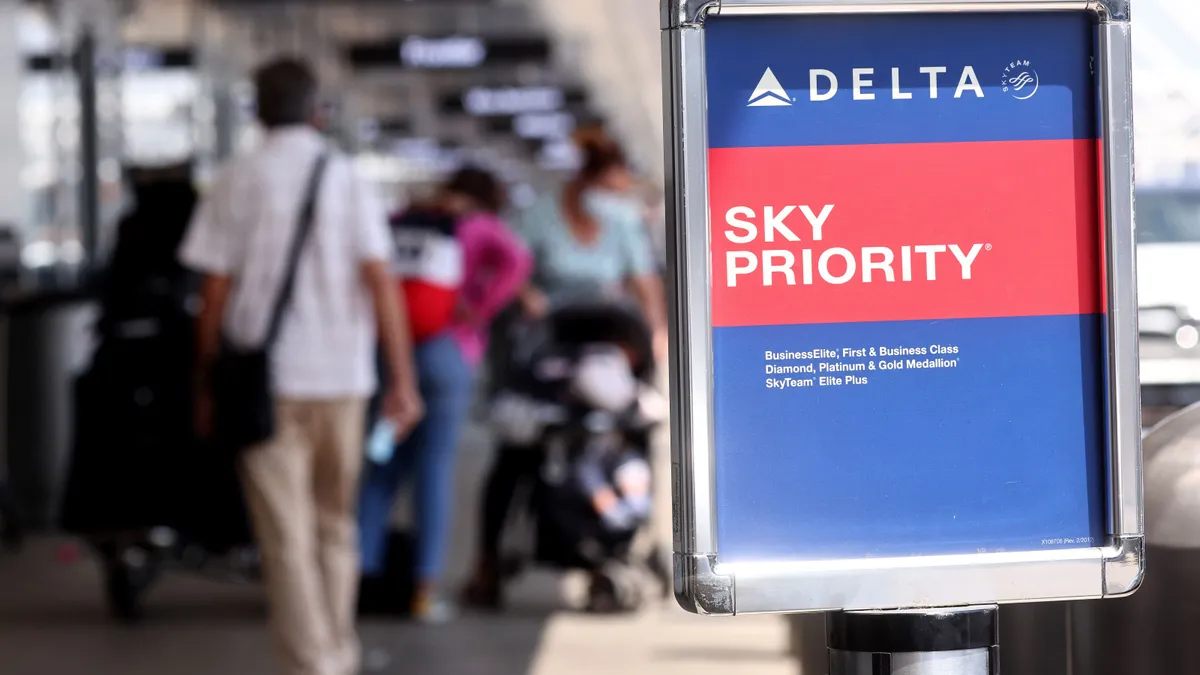The IRS is offering taxpayers a free electronic direct file option in the 2024 tax season, a first-time offering for the government.
The pilot will be available to taxpayers in 13 states who have relatively simple returns in an effort to offer “a seamless experience,” IRS Commissioner Daniel Werfel told CX Dive at the ACT-IAC CX conference in Arlington, Virginia, last week.
“It's an exciting moment for the IRS to be deploying this type of product because it gives taxpayers yet another option to reach us,” Werfel said.
The IRS has put renewed focus on improving the taxpayer experience, providing taxpayers with better service and choice in how they interact with the agency. The free file project is consistent with the IRS’s top agenda: to make it easier for taxpayers to reach the IRS any way they choose, Werfel said.
The IRS, which serves over 160 million individual taxpayers, received an infusion of funding last year via the Inflation of Reduction Act. After years of budget cuts, the agency now has 10 years and $80 billion to build back the IRS and better serve taxpayers.
Ayushi Roy, deputy director of New America’s New Practice Lab, led the third-party task force that reviewed the IRS’s direct file plans earlier this year. She said that in building the pilot, the IRS focused on offering assistance, convenience and accessibility.
On the first front, the IRS has staffed up its call center so that taxpayers using the direct file pilot have a direct line to call and introduced a callback option, she said. The agency is also working with tax centers around the country so that its staff can aid taxpayers should they need assistance with filing their taxes through the pilot.
The agency will offer the pilot in English and Spanish. It is also configured for mobile as well as desktop and tablets.
Roy stressed that the pilot was a learning experience and — having learned from the experience of rolling out healthcare.gov — that it would not be rolled out to everyone immediately.
“This is a pilot opportunity to serve the taxpayer better and to learn how to serve the American taxpayer better,” she said.
How the pilot came about
The IRS has long allowed taxpayers to file for free on paper, but it hasn’t had a free electronic option. Instead, it relied on private providers.
In 2003, the IRS partnered with the Free File Alliance, a group of tax filing software providers that promised to provide free tax filing options to eligible taxpayers so long as the IRS did not create its own software.
But often, companies in the partnership like Intuit’s TurboTax and H&R Block would advertise their tax filing software as free but would later charge taxpayers money through deceptive practices, ProPublica found.
“Congress, most recently in the Inflation Reduction Act, expressed their opinion that we needed to do more than a free file program, that the take up rate on free file program wasn't where it should be,” Werfel told CX Dive. “So how do you solve that? And the idea was that the IRS should study whether if it offered a free file option, would it, not replace the other free options, but increase the number of eligible taxpayers?”
The IRS concluded that “yes, we do have the feasibility, the technical know-how” to offer a free file option, Werfel said.
Werfel was explicit that the IRS pilot was just one option and would not replace others.
For its part, H&R Block has been investing in making tax filing easier for its customers. Its president and CEO, Jeff Jones, voiced his doubts about the IRS pilot program this fall.
“We find it hard to believe over time that they’ll be able to use taxpayer dollars to be in the business of building a product, marketing a product and supporting a product year in and year out,” Jones said during the company’s Q1 earnings call in November.
The future of the pilot depends on taxpayers’ reception to it and whether the IRS can provide a viable user experience and customer service, Werfel said.
“What is the customer reaction to it? What's the take up rate? What are some of the technical issues that we're experiencing? Could we keep the data secure? How does this impact our customer service operation?” Werfel said. “These are all questions that we're going to answer in the upcoming filing season through this pilot, and then we'll report back to Congress from the public.”





















